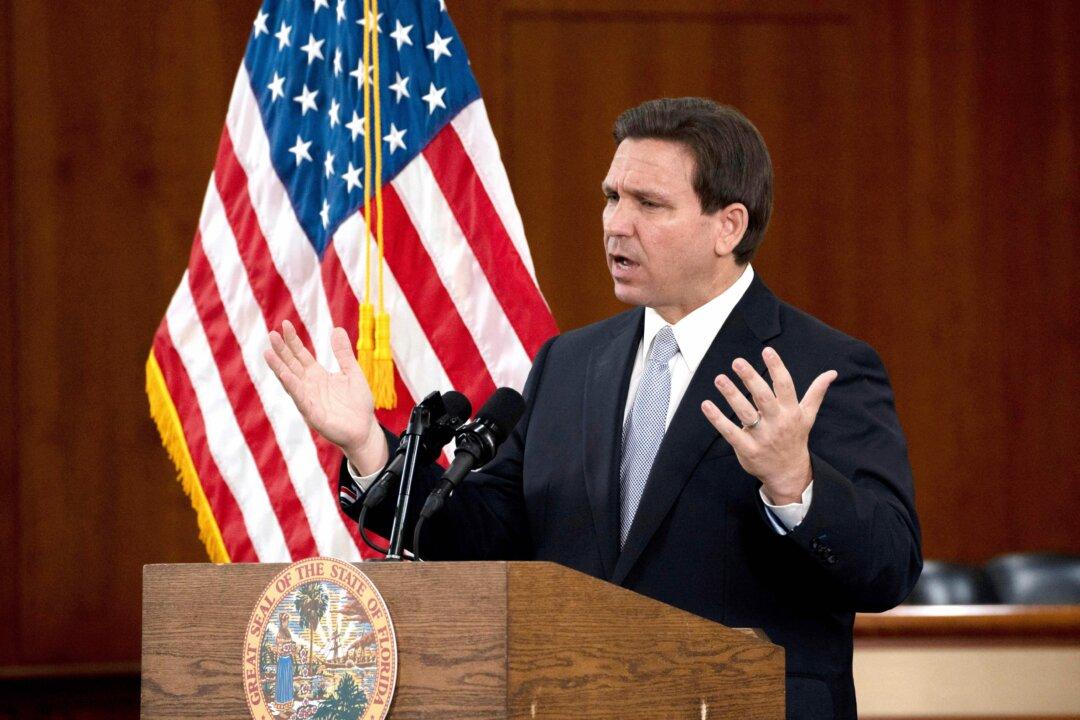Commentary
Presidential hopeful Ron DeSantis presents himself as a serious, pro-business, anti-woke, and conservative alternative to both former President Donald Trump and current President, Joe Biden.
Controversially, DeSantis is reportedly pro-big-conservative government—looking for ways to protect the little guy from institutional elites often more concerned about making money in China, for example, than the future of democracy here at home.
Conservative use of the government for conservative ends rubs some traditional small-government conservatives the wrong way. But the conservative movement has changed since 2016, when Trump won his watershed Republican nomination, and “baby Trump” is riding that wave—and likely into the upcoming Republican primaries.
One of DeSantis’ new conservative initiatives revolves around stronger protections for individuals against defamation by what he calls the “smear merchants” of mainstream media. He pushes back against claims that he supports big government by, for example, presenting his anti-defamation initiative as enabling individuals to seek redress for wrongs through private right of action rather than government regulation.
Last month, DeSantis hosted a roundtable discussion on “legacy media defamation practices.” During an hour with alleged victims, experts, and a self-described “annoying libertarian journalist” who worked for “various left-wing news organizations,” DeSantis demonstrated respect of alternative opinions, nuance regarding legal arguments, and consideration of both victims’ rights and getting out the “truth”—a word emblazoned behind the panel in a misleadingly Orwellian fashion.
In attempting to find the right balance between defamation protections and freedom, DeSantis must have known the press would attack him, and indeed the left-leaning press, including The New York Times and Washington Press, did so. While Fox has addressed both sides of the issue, in part because it is the defendant in a related defamation case, The Wall Street Journal has likely shown its disapproval of DeSantis’ initiative by remaining largely silent.
So, picking up the defamation issue is not exactly geared to DeSantis’ political advantage. It appears instead to be born of sincere concern and political courage, so the press should take it seriously rather than dismiss it in a shrill and self-serving manner.
At the roundtable, the Governor highlighted three cases that allegedly illustrate how the mainstream press victimizes people.





